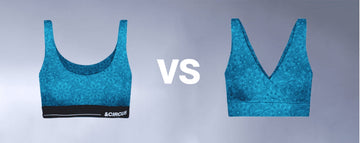Quick Listen:
In Mumbai's unrelenting summer humidity, where the air clings like a warm, wet blanket, ill-fitting underwear can turn a commute into a minor ordeal. Contrast that with the biting cold of a Shimla winter, where layers must insulate without stifling. India's climate is a tapestry of extremes monsoons that drench, deserts that scorch, and Himalayan winds that chill to the bone. For innerwear, this diversity demands more than mere fabric; it requires engineering. Advanced textile technologies are now redefining how India dresses beneath its outer layers, blending comfort, durability, and sustainability to tackle the nation's weather head-on.
The Indian innerwear market, valued at USD 10.24 billion in 2024, is on track to reach USD 19.25 billion by 2033, growing at a robust 6.7% annually. The lingerie segment, worth USD 5.4 billion in 2024, is projected to hit USD 12 billion by 2033, with an even faster 8.4% growth rate. These figures reflect a broader transformation: Indian consumers, from metropolitan trendsetters to rural pragmatists, are seeking underwear that breathes in heat, warms in cold, and aligns with an rising environmental awareness. Brands like Tailor and Circus are leading this charge, embedding cutting-edge fabric solutions into every stitch.
A Climate as Varied as Its Culture
India's geography defies uniformity. Chennai's coastal humidity lingers year-round, while Rajasthan's deserts oscillate between blistering days and frigid nights. In Ladakh, sub-zero temperatures demand serious insulation. No single fabric can conquer this range. Traditional cotton, prized for its softness, becomes a liability in monsoons, soaking up moisture and clinging uncomfortably. Polyester, though affordable, often traps heat, turning a summer day into a sauna. The task is clear: design innerwear that adapts to India's climatic mosaic while prioritizing wearer comfort.
Enter advanced textiles. Moisture-wicking fabrics, originally developed for athletes, are now standard, drawing sweat away to keep you dry during Hyderabad's sultry afternoons. Temperature-regulating materials, infused with phase-change technology, store or release heat to stabilize body temperature a built-in thermostat for your boxers. Sustainable options like organic cotton, bamboo, and Tencel are also gaining traction, offering eco-friendly performance without compromising function. These aren't just innovations; they're reshaping how India approaches its most personal apparel.
Tailor and Circus: Pioneering with Purpose
Tailor and Circus exemplifies this shift. Their mission is straightforward yet ambitious: create innerwear that serves all, in any season, anywhere in India. They use micromodal, a plant-based fiber three times more absorbent than cotton, to craft underwear that feels featherlight yet withstands India's humid onslaught. Tencel, derived from wood pulp, brings natural antibacterial properties, ideal for sweaty train rides. Their organic cotton, grown without harmful pesticides, is softer and more sustainable than its conventional counterpart, appealing to both skin and conscience.
Beyond materials, Tailor and Circus champions inclusivity. Their designs cater to India's diverse body types, reflecting the body positivity trend fueling the lingerie market's growth toward USD 15.5 billion by 2035. By merging performance with sustainability, they're capturing the attention of urban consumers who value products that perform as well as they feel. This ethos resonates in a market where disposable incomes are rising, and eco-consciousness is no longer a niche concern.
The broader industry is following suit. The global underwear fabric market, valued at USD 25.2 billion in 2024, is forecast to reach USD 36.8 billion by 2033, growing at 4.8% annually. Innovations like recycled polyester and nylon reduce waste while offering elasticity and resilience. Some brands are incorporating UV-protective fibers, a boon for India's sun-soaked regions. The outcome is innerwear that doesn't merely exist it performs, adapting to the wearer's environment with precision.
The Circular Economy Challenge
India's textile industry, a cornerstone of its economy, faces hurdles in adopting sustainable practices. A 2025 study on circularity in India's textile sector highlights the obstacles: small and medium enterprises struggle to implement circular economy models due to unclear metrics and frameworks. Despite government policies and international partnerships, the path to sustainability remains murky, complicating efforts to scale eco-friendly fabric production. This gap challenges brands aiming to balance environmental goals with market demands.
Navigating Innovation's Obstacles
Innovation isn't without its trade-offs. Designing a fabric that thrives across India's climatic spectrum is akin to building a vehicle that excels on both highways and rugged trails. A material that cools in Kochi's humidity might fail to insulate in Manali's frost. Sustainable fabrics like bamboo and Tencel, while revolutionary, are costlier to produce than conventional cotton or synthetics, often pricing them out of reach for rural consumers with limited budgets.
Durability poses another issue. Eco-friendly materials, though kind to the planet, can struggle in India's harsh conditions. Bamboo's softness, for example, may fade after repeated washes in mineral-heavy water. Monsoons can degrade delicate fibers, frustrating buyers. Additionally, consumer education lags. Shoppers accustomed to inexpensive cotton underwear may balk at premium prices, unaware that high-tech fabrics offer superior longevity and comfort. Brands like Tailor and Circus face the task of bridging this knowledge gap through savvy marketing.
A Market Poised for Expansion
Yet the potential is undeniable. The India's innerwear market, valued at USD 12.24 billion in 2023, is projected to reach USD 20.48 billion by 2030, with a 7.6% annual growth rate. Thermal and baselayer segments are surging as consumers prioritize versatile, all-season options. E-commerce platforms like Myntra and Zivame have transformed shopping, offering discretion and access to diverse brands, fueling this growth.
Adaptable fabrics are key to capitalizing on this trend. All-season textiles cool in summer, warm in winter, and resilient through rains enable brands to maintain steady sales, avoiding the seasonal dips that challenge traditional retail. Tailor and Circus, for instance, leverages such fabrics to optimize its supply chain, ensuring products remain relevant year-round. The sustainability push also resonates with urban millennials in cities like Bengaluru and Delhi, who are willing to invest in brands that reflect their environmental values.
The Future: Textiles That Think
The horizon is bright with possibility. Industry experts foresee smart textiles fabrics embedded with sensors to monitor body temperature or adjust breathability dynamically. Picture underwear that detects overheating during a crowded Mumbai commute and enhances ventilation instantly. While these technologies are nascent, they promise to redefine comfort in a nation where weather is unpredictable.
Tailor and Circus is already setting the stage, proving that innerwear can transcend utility. A company representative emphasized the importance of innovative design in addressing daily challenges faced by consumers. This vision drives the industry forward, transforming a basic necessity into a marvel of innovation.
Next time you navigate a blistering Jaipur afternoon or shiver in Darjeeling's mist, consider the fabric closest to your skin. It's more than underwear it's a testament to human ingenuity, crafted to endure India's wild seasons. Explore Tailor and Circus's latest offerings to experience this revolution firsthand. In a land as varied as India, your innerwear should be just as adaptable.
Disclaimer: The above helpful resources content contains personal opinions and experiences. The information provided is for general knowledge and does not constitute professional advice.
You may also be interested in: andCircus - Underwear for Men, Women, Bras Maternity Innerwear
Uncomfortable underwear shouldn't steal your confidence. At Andcircus, we craft ultra-soft, sustainable Lenzing Modal Micro innerwear for every body, XS to 5XL. From briefs to bras, our custom packs fit you perfectly. Shop risk-free with our 100% satisfaction guarantee and embrace comfort that includes everyone. #LoveEveryBody. Shop Now!







































